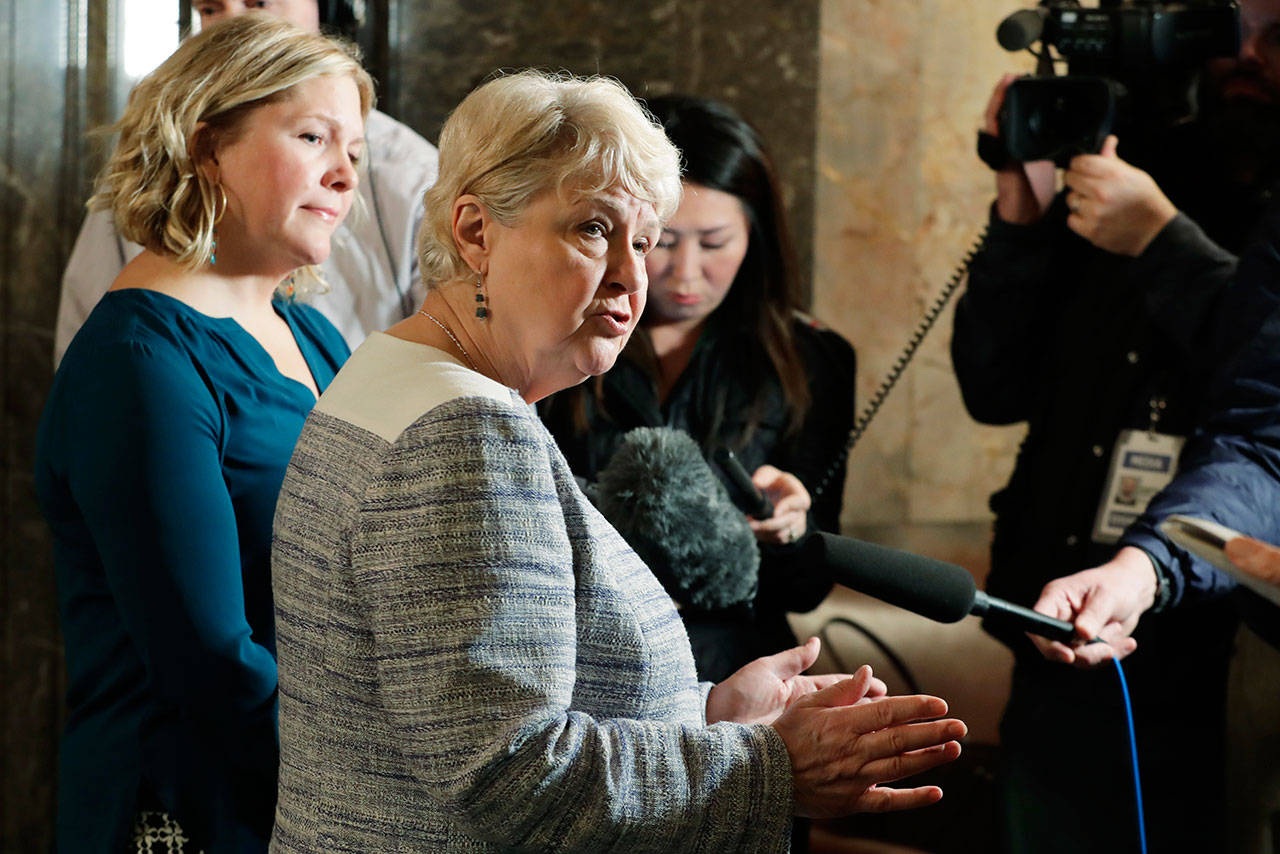By Rachel La Corte
The Associated Press
OLYMPIA — In the wake of a national conversation about sexual harassment sparked by the #MeToo movement, Gov. Jay Inslee on Wednesday signed a package of bills meant to address sexual misconduct at the workplace.
Inslee said allegations in recent months against powerful men in politics, business, entertainment and media are “bringing to light how inadequate our laws, rules and culture are when it comes to sexual harassment and assault.”
“We must do better to make sure employers understand there is no place for these behaviors in the workplace and provide tools to help them create a workplace that is safe and supportive of all workers,” he said.
The four bills include one that prohibits nondisclosure agreements that prevent employees from disclosing sexual harassment or assault and another that directs the Human Rights Commission to create a work group — including representatives from the business community as well as advocates for those affected by sexual harassment — to develop policies to keep workplaces safe from sexual harassment.
A third measure voids any employment contract, including arbitration agreements, that don’t have terms protecting an employee’s rights to file sexual harassment or assault complaints with authorities. And the fourth bill prevents nondisclosure agreements from affecting the ability to gather information or witness testimony in civil lawsuits related to sexual harassment or assault, and permits the discovery of past instances of sexual harassment or sexual assault in a civil lawsuit regardless of whether there was a nondisclosure agreement.
All of the measures take effect in June.
The National Conference of State Legislatures reports more than a dozen states introduced legislation this year related to sexual harassment in the workplace. They include measures that prohibit nondisclosure agreements related to sexual harassment. More than two dozen states introduced or enacted measures to expel members, criminalize sexual harassment at state Capitols, or mandate harassment training within statehouses.
Suzanne Hultin, an employment policy director at NCSL, said that it appeared Washington was the first to enact laws addressing sexual harassment nondisclosure agreements in the broader workplace. California, Maine and Oregon have previously passed sexual harassment training in the workplace, and Hultin said that while California passed legislation in 2016 banning the use of a confidentiality clause that would prevent the disclosure of “factual information” in a civil settlement in regards to a sexual offense, it did not specify sexual harassment as one of the Washington bills do.
Democratic Sen. Karen Keiser, who sponsored three of the bills, said that the national conversation surrounding sexual harassment has given people “permission to say, ‘Hey, I know what that’s about, that’s happened to me.’ ”
Washington’s lawmakers also sought to review policies and procedures on addressing sexual harassment, training and reporting procedures at the Legislature following revelations of misconduct at the state Capitol in recent months.
More than 200 women — including lobbyists and lawmakers — signed a letter in November calling for a culture change at the Capitol. The signers included a bipartisan group of more than 40 lawmakers.
Rebecca Johnson, a lobbyist who helped organize the November letter, said Wednesday the number of signers “showed how pervasive and how almost universal our experiences were across all of the populations that work here.”
However, while the House this year passed a resolution setting up a task force on sexual harassment at the Legislature, the Senate didn’t follow suit after there was some concern about whether legislative staff had an adequate voice on the task force.
Keiser said that there is currently a Senate staff work group regarding sexual harassment, as well as ongoing informal conversations. She noted that the model rules bill — which requires policies and practices to be posted by Jan. 1, 2019 — applies to all workplaces, including the Capitol.
